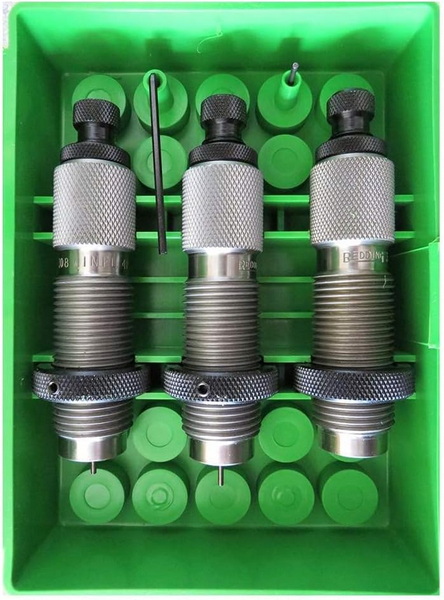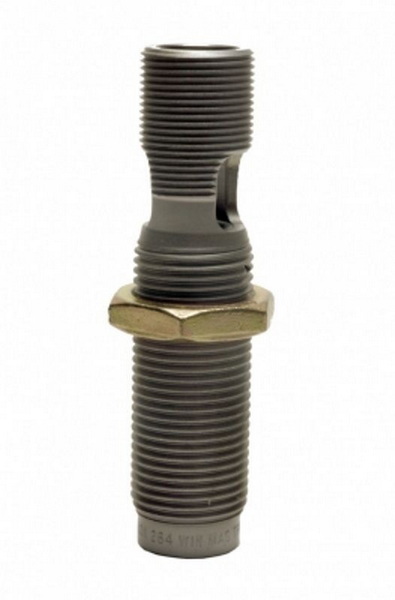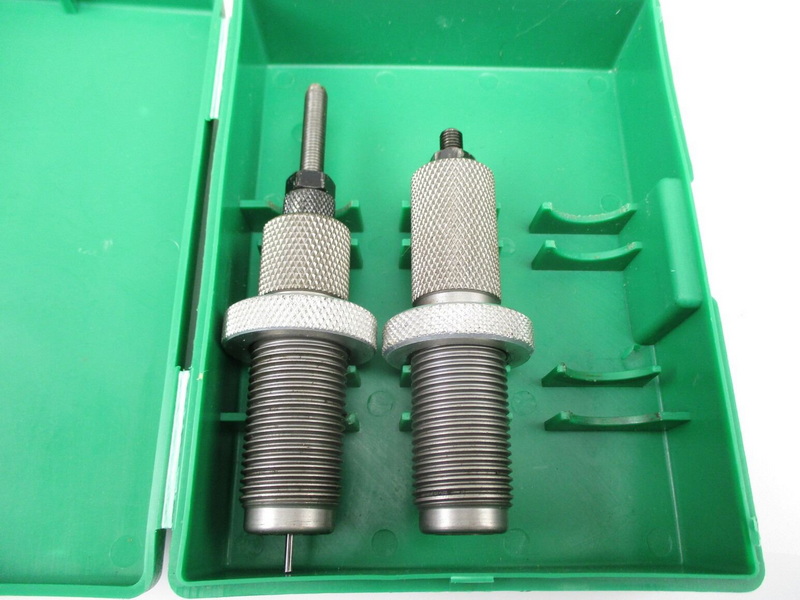Content Menu
● Introduction
● What Are 308 Carbide Reloading Dies?
● Advantages of 308 Carbide Reloading Dies
>> Improved Accuracy and Consistency
>> Durability and Longevity
>> Reduced Cleaning and Maintenance
>> Enhanced Case Life
>> Versatility in Reloading
● How to Choose the Right 308 Reloading Dies
>> Different Types of Reloading Dies
>> Brand Recommendations
● Tips for Using 308 Carbide Reloading Dies
>> Follow Proper Reloading Procedures
>> Monitor for Common Issues
● User Reviews and Case Studies
● Conclusion
● Frequently Asked Questions
>> Q1. What is the difference between carbide and steel reloading dies?
>> Q2. Can I use carbide dies for neck sizing only?
>> Q3. How often should I clean my carbide reloading dies?
>> Q4. Are carbide reloading dies suitable for beginners?
>> Q5. What should I do if my resized cases are difficult to chamber?
Introduction
Reloading ammunition is a practice that has gained popularity among shooting enthusiasts and competitive marksmen alike. Among the various calibers, the .308 Winchester stands out due to its versatility and performance. When it comes to reloading .308 cartridges, the choice of reloading dies is crucial. One of the best options available is the 308 carbide reloading dies. These specialized tools offer numerous benefits that enhance the reloading process, ensuring precision and consistency. In this article, we will explore the advantages of using 308 carbide reloading dies, how to choose the right ones, and tips for effective reloading.
What Are 308 Carbide Reloading Dies?
308 carbide reloading dies are precision-engineered tools designed specifically for resizing and shaping .308 Winchester cartridges. Unlike standard steel dies, carbide dies are made from a harder material that provides several advantages. The carbide material is known for its durability and resistance to wear, making it an ideal choice for reloading high-volume ammunition.
Carbide dies typically come in various types, including full-length sizing dies, neck sizing dies, and seating dies. Each type serves a specific purpose in the reloading process, allowing for greater customization and precision in ammunition production.

Advantages of 308 Carbide Reloading Dies
Improved Accuracy and Consistency
One of the primary benefits of using 308 carbide reloading dies is the enhanced accuracy they provide. The precision manufacturing of carbide dies ensures that each cartridge is resized uniformly, leading to consistent bullet seating and improved overall performance. This consistency is crucial for competitive shooting, where even the slightest variation can affect accuracy.
Durability and Longevity
Carbide dies are significantly more durable than their steel counterparts. The hardness of carbide allows these dies to withstand the rigors of resizing brass cases without wearing down quickly. This durability translates to a longer lifespan, making carbide dies a cost-effective investment for serious reloaders.
Reduced Cleaning and Maintenance
Another advantage of using 308 carbide reloading dies is the reduced need for cleaning and maintenance. The smooth surface of carbide dies minimizes the buildup of residue and brass shavings, which can be a common issue with steel dies. As a result, reloaders spend less time cleaning their tools and more time focusing on the reloading process.
Enhanced Case Life
Using carbide dies can also extend the life of your brass cases. The gentle resizing process of carbide dies reduces the stress placed on the brass, minimizing the risk of case stretching and cracking. This means that reloaders can use their brass cases for a longer period, ultimately saving money on new brass.
Versatility in Reloading
308 carbide reloading dies are versatile tools that can accommodate various reloading needs. Whether you are full-length resizing for semi-automatic rifles or neck sizing for bolt-action rifles, carbide dies can handle it all. This versatility makes them an excellent choice for reloaders who work with different firearms and shooting applications.
How to Choose the Right 308 Reloading Dies
When selecting the right 308 reloading dies, there are several factors to consider:
Different Types of Reloading Dies
1. Full-Length Sizing Die: This die resizes the entire case, ensuring it fits in any chamber. It is ideal for semi-automatic rifles and is often recommended for new reloaders.
2. Neck Sizing Die: This die only resizes the neck of the case, allowing for a tighter fit in bolt-action rifles. It is best used with cases that have been fired in the same chamber.
3. Seating Die: This die is used to seat the bullet into the case. It ensures that the bullet is positioned correctly for optimal performance.
Brand Recommendations
Several reputable brands manufacture high-quality 308 carbide reloading dies. Some of the most popular brands include:
- Dillon Precision: Known for their durable and reliable reloading equipment, Dillon offers a range of carbide dies that are favored by competitive shooters.
- RCBS: A well-established name in the reloading industry, RCBS provides a variety of carbide dies that cater to different reloading needs.
- ZHONGBO CEMENTED CARBIDE: ZHONGBO CEMENTED CARBIDE's carbide dies are known for their precision and affordability, making them a great choice for both beginners and experienced reloaders.

Tips for Using 308 Carbide Reloading Dies
Follow Proper Reloading Procedures
To achieve the best results with your 308 carbide reloading dies, it is essential to follow proper reloading procedures. This includes:
- Cleaning Brass Cases: Before resizing, ensure that your brass cases are clean and free of debris. This will prevent damage to the dies and ensure smooth operation.
- Adjusting Die Settings: Properly adjust the die settings according to the specific requirements of your reloading process. This may involve setting the die to the correct depth for resizing or bullet seating.
- Using Quality Components: Invest in high-quality components, including primers, powder, and bullets. The quality of these components will directly impact the performance of your reloaded ammunition.
Monitor for Common Issues
Reloading can sometimes lead to common issues that may affect the quality of your ammunition. Be vigilant for signs of:
- Case Stretching: If you notice that your brass cases are stretching excessively, it may be a sign that your die settings need adjustment.
- Inconsistent Bullet Seating: If your bullets are not seating consistently, check the seating die and ensure it is properly adjusted.
- Difficult Resizing: If you encounter resistance while resizing, inspect the die for debris or damage.
User Reviews and Case Studies
Many reloaders have shared their positive experiences with 308 carbide reloading dies. Users often report improved accuracy and consistency in their ammunition, leading to better performance on the range.
For instance, a competitive shooter noted that switching to carbide dies significantly reduced their group sizes, allowing them to achieve tighter shot patterns. Another user highlighted the ease of use and maintenance of carbide dies, stating that they appreciated the time saved on cleaning.
Conclusion
In conclusion, 308 carbide reloading dies offer numerous benefits that enhance the reloading process for .308 Winchester cartridges. From improved accuracy and consistency to durability and reduced maintenance, these tools are an excellent investment for both novice and experienced reloaders. By understanding the different types of dies available and following proper reloading procedures, you can maximize the performance of your ammunition and enjoy a more rewarding reloading experience.

Frequently Asked Questions
Q1. What is the difference between carbide and steel reloading dies?
Carbide reloading dies are made from a harder material that offers greater durability and resistance to wear compared to steel dies. This results in longer lifespan and less frequent cleaning.
Q2. Can I use carbide dies for neck sizing only?
Yes, carbide dies can be used for neck sizing. However, it is essential to choose a neck sizing die specifically designed for that purpose to ensure optimal performance.
Q3. How often should I clean my carbide reloading dies?
While carbide dies require less cleaning than steel dies, it is still advisable to clean them periodically to remove any residue or debris that may accumulate during the reloading process.
Q4. Are carbide reloading dies suitable for beginners?
Yes, carbide reloading dies are suitable for beginners due to their ease of use and reduced maintenance requirements. They provide consistent results, making them a great choice for novice reloaders.
Q5. What should I do if my resized cases are difficult to chamber?
If your resized cases are difficult to chamber, check the die settings and ensure they are properly adjusted. Additionally, inspect the cases for any signs of damage or excessive stretching.
















